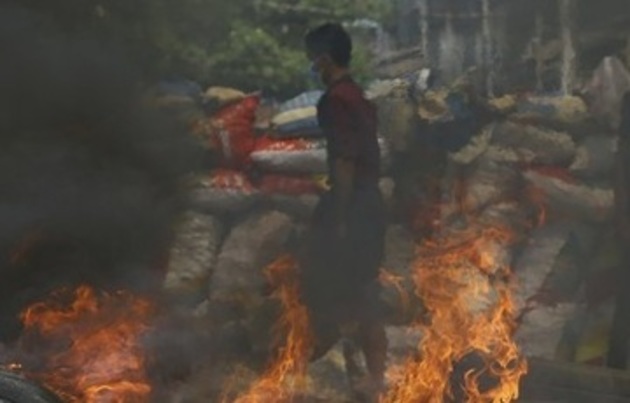According to human rights organizations, the number of the killed in clashes between participants of protests and the police, which have been taking place in Myanmar for two months, exceeded 500. Myanmar security forces opened fire Sunday on a crowd attending the funeral of student who was killed on the bloodiest day yet of a crackdown on protests against last month’s coup, local media reported.
Associated Press reports that the escalating violence — which took the lives of at least 114 people Saturday, including several children — has prompted a U.N. human rights expert to accuse the junta of committing “mass murder” and to criticize the international community for not doing enough to stop it.
The Security Council is likely to hold closed consultations on the escalating situation in Myanmar, U.N. diplomats said Sunday, speaking on condition of anonymity ahead of an official announcement. The council has condemned the violence and called for a restoration of democracy, but has not yet considered possible sanctions against the military, which would require support or an abstention by Myanmar’s neighbor and friend China.
The mounting death tolls have not stopped the demonstrations against the Feb. 1 takeover — or the violent response of the military and police to them. Myanmar Now reported that the junta’s troops shot at mourners at the funeral in the city of Bago for Thae Maung Maung, a 20-year-old killed on Saturday. He was reportedly a member of the All Burma Federation of Student Union, which has a long history of supporting pro-democracy movements in the country.
The Feb. 1 coup that ousted Aung San Suu Kyi’s elected government reversed years of progress toward democracy after five decades of military rule. It has again made Myanmar the focus of international scrutiny as security forces have repeatedly fired into crowds of protesters. At least 459 people have been killed since the takeover, according to the Assistance Association for Political Prisoners. The crackdown extends beyond the demonstrations: Humanitarian workers reported that the military had carried out airstrikes Sunday against guerilla fighters in the eastern part of the country.
.jpg)
Henrietta Fore, head of the U.N. children’s agency UNICEF, said in Saturday’s bloodiest day since the coup “an 11-year-old boy, an 11-year-old girl, two 13-year-old boys, a 13-year-old girl, three 16-year-old boys and two 17-year-old boys, (were) all reportedly shot and killed.” She said “a 1-year-old baby girl gravely injured after being struck in the eye with a rubber bullet.”
“In less than two months, at least 35 children have allegedly been killed, countless others seriously injured and almost 1,000 children and young people reported arbitrarily detained by security forces across the country” she said, condemning the indiscriminate killings and demanding that those responsible be held accountable.
The junta has accused some of the demonstrators of perpetrating the violence because of their sporadic use of Molotov cocktails and has said its use of force has been justified to stop what it has called rioting. While protesters have occasionally hurled firecrackers at troops and on Saturday carried bows and arrows, they remain vastly outgunned and have shown commitment to methods of nonviolent civil disobedience.
Those calls were echoed by others. U.N. Secretary-General Antonio Guterres said he was shocked by the killings of civilians, including children, and a group of defense chiefs from 12 countries also condemned the violence.
U.N. Special Adviser on the Prevention of Genocide, Alice Wairimu Nderitu, and U.N. High Commissioner for Human Rights, Michelle Bachelet, said: “The shameful, cowardly, brutal actions of the military and police – who have been filmed shooting at protesters as they flee, and who have not even spared young children – must be halted immediately.”
It’s still not clear what action is possible — or how quick it could be. The U.N. Security Council has not advocated concerted action against the junta, such as a ban on selling it arms.






